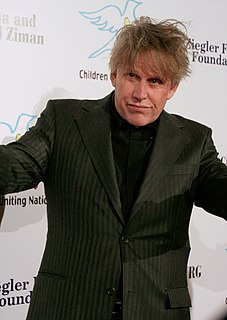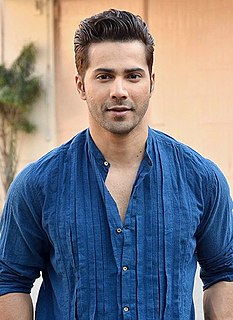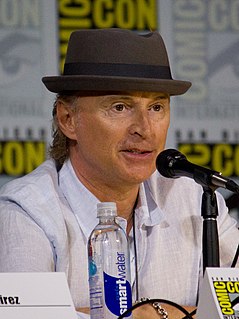A Quote by Pawel Pawlikowski
For me, each film, each script is like a little journey in itself, and I'm reinventing the wheel. It's like, 'How do I make this film?' That's part of the pleasure, and that's why I'm not a normal professional director.
Related Quotes
With a good script a good director can produce a masterpiece; with the same script a mediocre director can make a passable film. But with a bad script even a good director can’t possibly make a good film. For truly cinematic expression, the camera and the microphone must be able to cross both fire and water. That is what makes a real movie. The script must be something that has the power to do this.
Suddenly, after years of television being the poor relation and film being everything, it now feels like film is a conjuring trick. It's like, "Oh, my god, how are you going to do that in 90 minutes, as opposed to eight hours?! I've got so little time to do this!" It becomes an art form, in itself. Doing both helps you do each one.
Well, there's two things I have criteria for doing a film: The script, which is the story, and the filmmaker, and it's a filmmaker's medium. I like really strong directors, and so when I do a film, I'm out there to serve the director, really, which is in turn to serve the script, to serve the director cause he's the one making the film. I relied on Todd Haynes for that.
When you are on the set, you have different departments - you got camera, sound, props, hair, makeup, catering, executives. Imagine each one of those are spokes on the wagon wheel. All the spokes come into a hub: the hub is the director. The wood the spokes go into are distribution and promotion; the steel wheel around the hub is the film. None of these have anything in common with each other.
There certainly is no secret in that there are plenty of people who don't like plenty of my movies. Each one of my films is personal; each one of my films is emotionally autobiographical. And I like directors who do that. With each one of my films, I'm exploring one of my own issues and I try to expose myself a little in the film.
I really discovered [Dr.Strange] through hearing about this film and first meeting Scott [Derrickson] and getting into it and just opening up and saying, "Okay, this is, like all comics, very much of its era," and my first question was, 'How do you make this film? Why do you make this film now?' and the answers were so enticing that I was like, "I'm in."





































